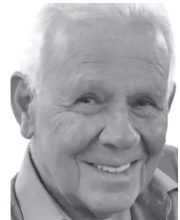“I’m tired of hoping.”
That sentence, spoken to me by a member of our congregation last week, summarizes the mood of many.
Tired of hoping.
Tired of waiting, tired of trying, tired of seeing the light at the end of the tunnel grow dimmer. At the start of the pandemic most of us did well: we pitched in, we volunteered, we hosted zoom parties, we attended virtual church. But it seems goalposts keep moving. It is taking … so … long.
The website STAT, designed for medical professionals, recently ran a story expressing this same sentiment. “Covid-19,” the article began, “has become like a chronic stressor, one that has ebbed and flowed but hasn’t disappeared … for over a year. ‘At what point do we get to breathe?’ asked Theresa Nguyen, the chief program officer at Mental Health America.”
And not just Covid-19. Rebuilding after the CZU fire is taking longer than most anticipated. Various social problems seem so intractable we despair of progress. So how do you maintain a positive attitude when, in the middle of the race, you suddenly realize you’re in a marathon and not a sprint?
The counter-intuitive key: Seeing the value of suffering itself. In his book “The Life You’ve Always Wanted,” John Ortberg quotes a survey in which hundreds of people were asked to identify the most formative factors in their personal growth. The top responses overwhelmingly involved times of suffering and pain.
I find it interesting that the tools we like to use for personal development—finding a mentor, reading a book, attending conferences––we can schedule. But the most effective tool? No one schedules suffering. No one wants to. No one has to. Life schedules it for us.
A little more than a year ago, many of us found life had scheduled a trial: The CZU fire, which had a huge cost for our church as it destroyed our camp almost totally. Strangely, I find the fire’s destruction seems more real now than when it first occurred. At the time, our congregation was intensely focused on the fire evacuee camp we were hosting on our main campus. One year later, as a demolition team is clearing rubble from our site, there is more time to contemplate our loss. It hurts.
In Ortberg’s book he quotes Gerald Sittser, who lost three members of his immediate family in a single-car accident. Here’s how Sittser describes navigating his tragedy: “Loss creates a barren present, as if one were sailing on a sea of nothingness. Those who suffer loss live suspended between a past for which they long and a future for which they hope.”
Of course, our loss of camp can’t compare to his loss of loved ones, yet I find his description resonates. I have often felt suspended recently between longing for a pre-fire (and pre-Covid) past and hope for a better future. The whole world is in that place, a strange twilight zone of suspended animation as we wait for change. The road to recovery will be longer than any of us imagined.
So how do we grow in the in-between time? Suffering is a powerful catalyst for growth, but not inevitably.
We need to consciously respond to delay and pain as an opportunity for personal change.
I always want to hurry past midnight and get to the morning. But sometimes––maybe usually––growth is about walking through the darkness, one foot in front of the other, simply refusing to quit until the sun comes up. Somehow it’s there—in the middle, between the past and future, where no one really wants to be––that our character is forged, that we are changed into the people God wants us to be, people we want to be: People of deep peace and patience and joy.
For burned buildings to be rebuilt, for Covid to be vanquished, for society to improve, will take many years. For God to build beautiful things in us? That can happen right now. And will happen. As we open ourselves to that possibility every day.
As Carey Nieuwhof wrote, “The path to the good news is blazed by people willing to keep walking through the bad news.” We are all on that walk right now.
The Bible puts it this way: “Consider it pure joy, my brothers and sisters, whenever you face trials of many kinds, because you know that the testing of your faith produces perseverance. Let perseverance finish its work so that you may be mature and complete.” (James 1:2-4)
Another woman in our congregation who is facing many daunting challenges—yet has learned to grow even in the midst of them––told me of the difference that attitude makes: “It’s the difference between joyful living and uptight living.”
Knowing even suffering has rich value. That’s how to find hope when you’re tired of hoping.
René Schlaepfer is senior pastor of Twin Lakes Church in Aptos, www.tlc.org. His views are his own and not necessarily those of the Pajaronian.










